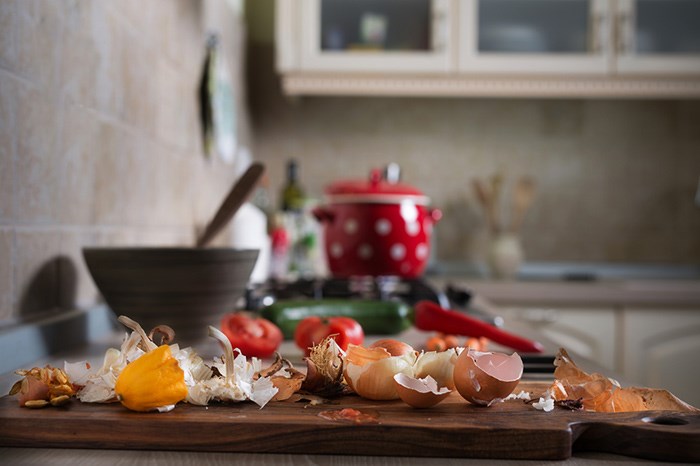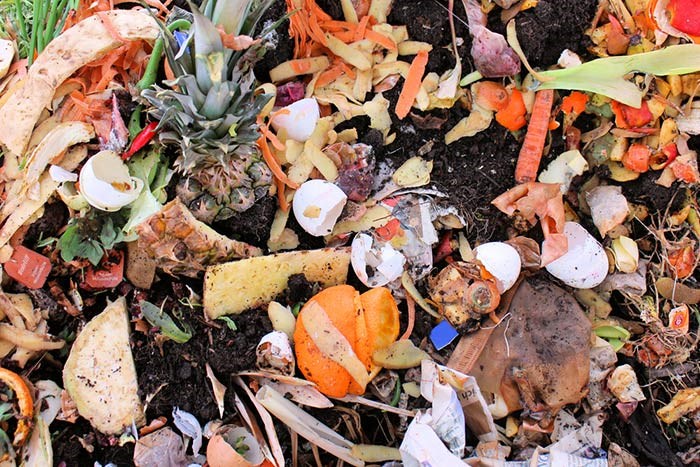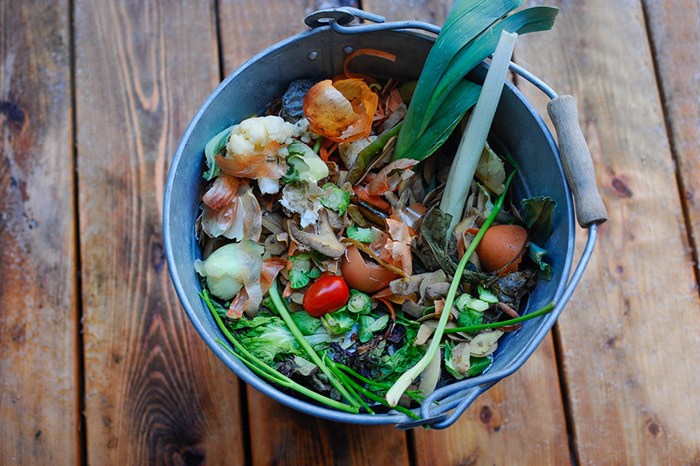 Photo: Shutterstock
Photo: Shutterstock
Actually, for a few reasons!
In Metro Vancouver, food scraps recycling takes waste out of our landfills while reducing our methane contributions and creating compost and bioenergy in the process. This does a whole world of good for… our world, and also creates jobs in recycling program development, education, collection, processing and marketing around the city.
It’s important to remember that recycling food waste is not just a good deed, it’s a necessary step in protecting our environment. Simply put, food scraps recycling isn’t just about doing good, it’s about preventing the bad.
WHY RECYCLE FOOD SCRAPS?
 Photo: Shutterstock
Photo: Shutterstock
In the landfill, buried under layers of waste and without access to oxygen, food can't decompose properly, which creates methane, a powerful greenhouse gas that adds to global warming. Yes, just because items are made of organic material doesn’t mean they can decompose anywhere. Compostable organics also make waste-to-energy processes less efficient because of their high moisture content.
This is a huge problem in Metro Vancouver, in fact 30% of what we send to landfill is compostable organics! This takes up a lot of precious landfill space and creates a lot of methane in the process.
OKAY, SO WHAT CAN I PUT IN MY GREEN BIN?
Great question! All food, including produce, grains, dairy, and meat, prepared food (leftovers), shells, bones, oil and grease can go in your food scraps recycling. A lot of food-soiled paper-products are also compostable, but are not recyclable with clean papers. Eligible items include:
• Paper napkins
• Food-soiled newsprint (often used to line a kitchen catcher)
• Paper egg cartons
• Paper bags
• Coffee grounds and filters
• Tea bags
• Waxed cardboard (often used as takeout containers)
•Wooden chopsticks, skewers, popsicle sticks
WHAT ABOUT ITEMS I SHOULD NEVER PUT IN MY GREEN BIN?
Okay, now we’re talking! If you want to be an outstanding food waste recycler, never ever place inorganic materials like glass, metal or plastic in your compost or green bin. That should be obvious, but you’d be surprised at what ends up in there.
Even plastic and plastic-lined bags labelled “biodegradable” or “compostable,” are not accepted at all local facilities as they can cause operational problems as they may not break down properly during processing and can contaminate the finished compost. If a collector identifies plastic bags or other non-compostable materials in the green bin, the entire load may be rejected and sent to landfill!
Some examples of items that should never end up in your green bin include:
• Bread tags
• Cereal and cracker box liners
• Cigarettes and butts
• Cork
• Elastic bands
• Netting
• Pet waste or kitty litter
• Personal hygiene items
• Plastic bags and plastic-lined bags, even those marked “biodegradable” or “compostable”
• Produce stickers (PLU stickers), even those marked “biodegradable” or “compostable”
• Twist ties
• Vacuum contents and bags
 Photo: Shutterstock
Photo: Shutterstock
Food scrap disposal has been banned for all residents and businesses in Metro Vancouver since January 2015. This applies to apartments and condos as well as detached homes. Unfortunately, not everyone is doing their part. Metro Vancouver’s Organics Disposal Ban can fine households a 50% surcharge on the cost of disposing of excessive amounts of improperly disposed of food waste and compostable organics.
Remember, proper food scraps recycling takes waste out of our landfills, reduces our methane contributions, and creates compost and bioenergy. It also makes you AWESOME.
To learn more about food waste recycling, visit metrovancouver.org/foodscraps


